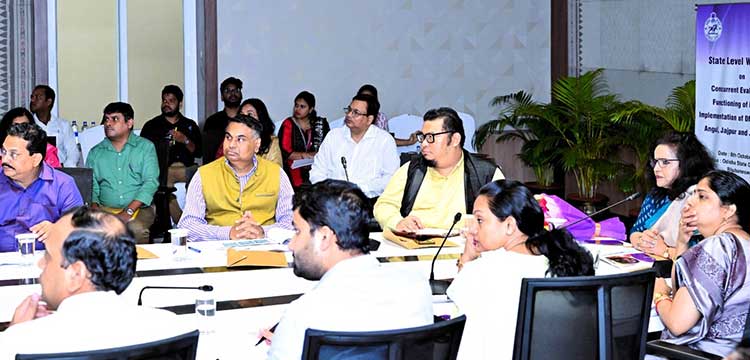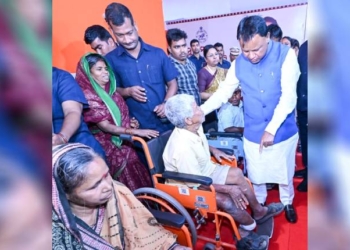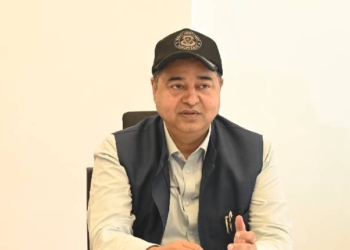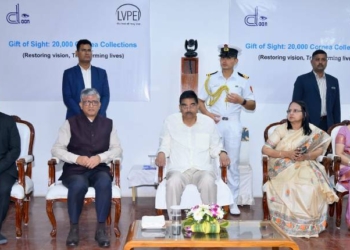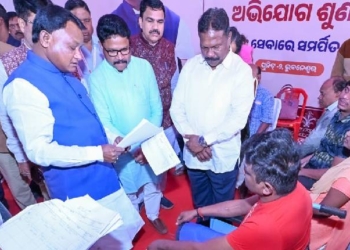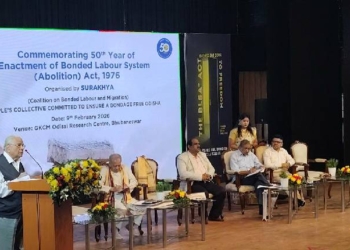Bhubaneswar: A state-level workshop was organised by the Planning and Convergence Department, Government of Odisha, on Wednesday to discuss the findings of the “Concurrent Evaluation of Functioning of District Mineral Foundations (DMF) and Implementation of DMF Projects in Angul, Jajpur, and Jharsuguda” districts.
The workshop was chaired by Anu Garg, Development Commissioner-cum-Additional Chief Secretary to the Government of Odisha.
The concurrent evaluation of the District Mineral Foundations (DMFs) in Angul, Jajpur, and Jharsuguda highlights that the DMF has become a transformative mechanism for inclusive development in Odisha’s mining-affected areas. Over 32,000 projects have been sanctioned across the state in DMF districts so far, out of which 13,244 projects and villages were sampled for evaluation. These projects largely focused on health, education, livelihoods, drinking water, and infrastructure—bridging critical resource gaps. The evaluation found high socio-economic returns from investments such as piped water, roads, health facilities, and skill development programmes. The DMF’s catalytic role is evident, with cost-benefit ratios showing particularly strong community impact in education and sanitation projects.
The report recommends strengthening planning, monitoring, and sustainability, including the development of five-year perspective plans, structured operations and management protocols, and baseline surveys. It calls for capacity building, a centralised digital repository to enable transparency and learning, and cross-district knowledge exchange. Moving forward, the DMF can serve as catalytic capital for innovation—supporting a just transition in coal districts and piloting scalable livelihood, skilling, and technology-led models.
Overall, the evaluation underscores that the DMF has accelerated development and improved the quality of life in mining-affected areas, and with institutional reforms, it can continue to drive sustainable, people-centered growth in Odisha.
Speaking on the occasion, the DC-cum-ACS noted, “This was an exercise to identify good practices and areas where districts can strengthen further. The government is encouraging districts to undertake baseline surveys, factor operation and maintenance into project planning, and enhance monitoring and awareness of DMF initiatives. Data systems and fund flow mechanisms can also be refined to support faster and more transparent implementation. The government is planning new measures under DMF—particularly to ensure full saturation of benefits in villages within a 5 km radius of mining areas.”
Among others, the Commissioner-cum-Secretaries of the PR & DW Department, RD Department, SD&TE Department, Special Secretaries and Additional Secretaries of the P&C Department, Director of ICDS & SW, along with senior officers of all concerned departments of the Government of Odisha, were present and participated in the discussion.
The Collectors of Angul and Jajpur, along with the ADM of Jharsuguda, participated in the discussion, deliberating on various issues and challenges in the implementation of DMF projects and sharing their suggestions.
The concurrent evaluation study was conducted by G.T. Bharat LLP, a third-party organisation, and is one of its kind to evaluate the implementation of DMF projects in the country.
With this evaluation, Odisha has once again set a national benchmark in ensuring that the benefits of mineral wealth translate into sustainable development and improved quality of life for local communities.




